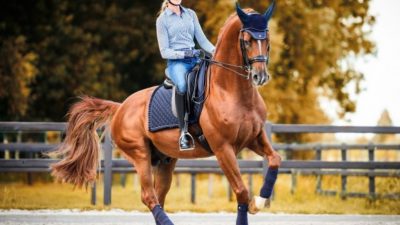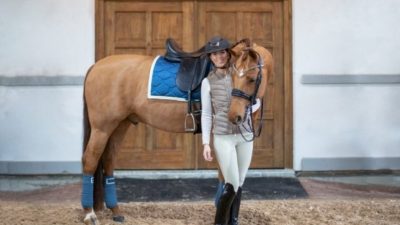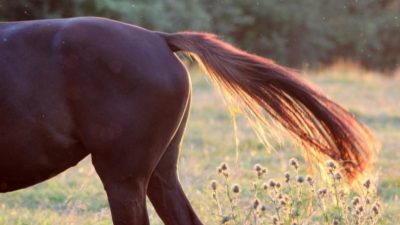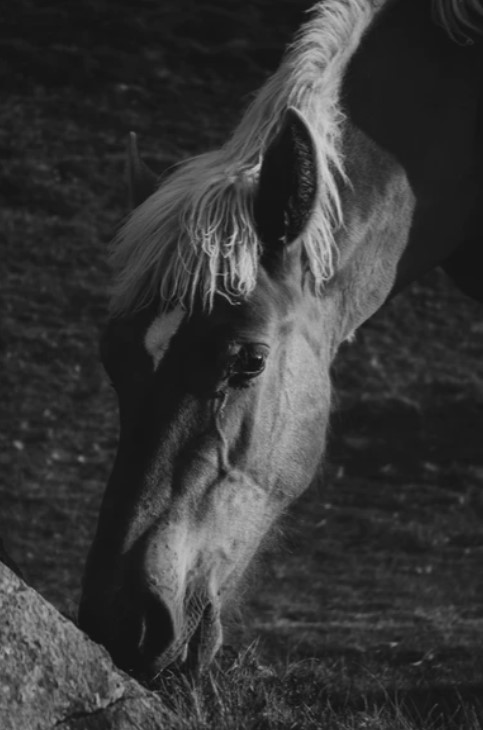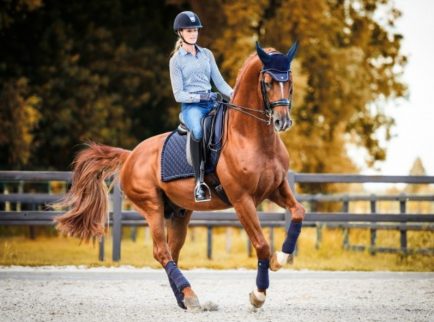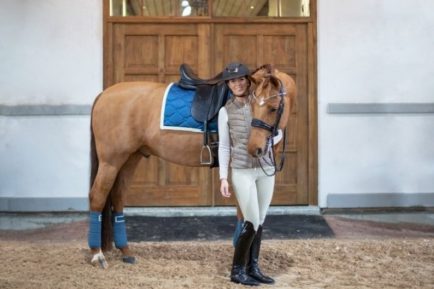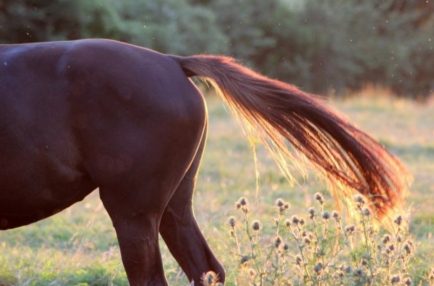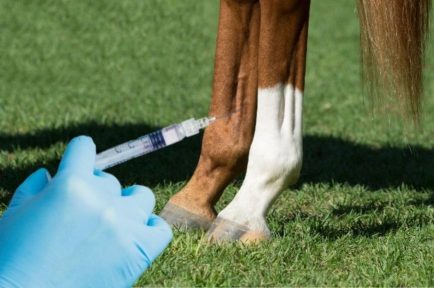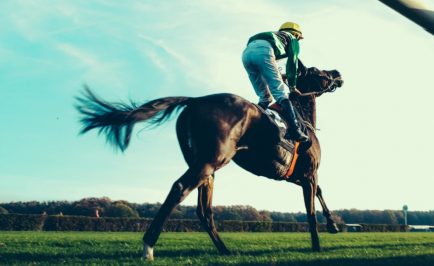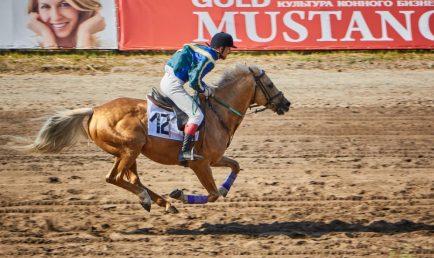As you stumble around a dark pasture with a flashlight on a winter evening, you may wonder how your horse manages with fewer hours of daylight. The answer is, “Very well.”
For starters, horses have a higher ratio of rods to cones in their eyes than people do. Rods are specialized cells that are sensitive to light; cones are more sensitive to color. Horses also have a layer of tissue behind their retinas called a tapetum lucidum, which reflects light. These differences mean that your horse has much better night vision than you do.
In fact, your horse can see as well under the light of a full moon as he does at midday. Even in what seems like pitch-dark to us, most horses can see well enough to safely navigate their surroundings. (Genetic night blindness does occur in some breeds but is rare.) In a 2009 study of equine night vision, the horses were able to avoid objects in their enclosure while the human researchers were stumbling about.
Remember, however, that your horse’s eyes do not adjust as quickly as yours do when moving between light and dark areas. So when you’re taking your horse from a brightly lit barn out to a darkened pasture, or vice versa, pause and give him a few moments for his eyes to adjust to the sudden change in the light.
Original article: Night Vision (equusmagazine.com)
www.royalequestriancollection.com – check our website to purchase and enjoy our products for your horses and you.









